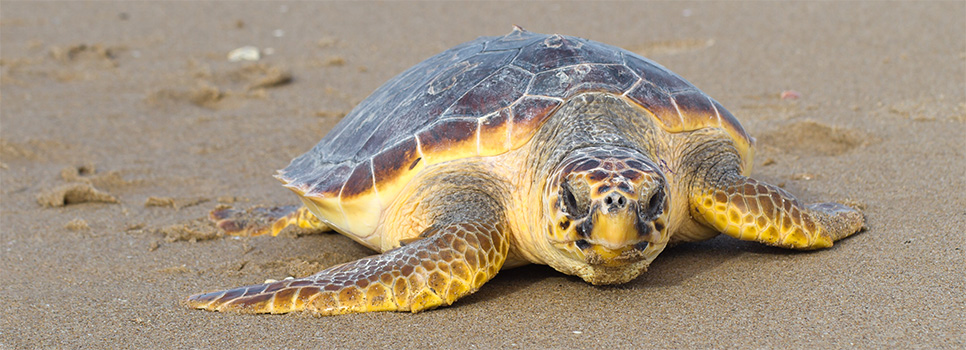FIRST IDENTIFICATION OF LISTERIA MONOCYTOGENES IN A SEA TURTLE

A fundamental step forward to understand the role of this pathogenic microorganism in the marine ecosystem
A stranded sea turtle found along the Abruzzo coast, which died a few days after recovery, was the starting point for the isolation of Listeria monocytogenes. This is the first time this microorganism has been identified in a marine reptile, paving the way for new researches aimed to better understand its diffusion in the marine environment.
The study, led by the Istituto Zooprofilattico Sperimentale (IZSAM) of Teramo, Italy, and published in the scientific journal Animals, focused on a loggerhead sea turtle (Caretta caretta), the most widespread in the Mediterranean. The animal, found on a beach near the town of Ortona, in Abruzzo region, was collected by the NGO Centro Studi Cetacei and transferred to the Sea Turtle Recovery and Rehabilitation Center in Pescara, where it died after six days due to its already serious health conditions.
At this point, investigations started at the IZS laboratories, where the carcass was transferred. Results were rather surprising: the turtle died because of listeriosis. As a potential cause of food contamination and, albeit rarely, of serious infections in humans, it’s necessary to pay great attention to this bacterium.
“Listeria monocytogenes – says Ludovica Di Renzo, first author of the paper - is widespread, both in soil and fresh waters. Furthermore, the bacterium is also capable of surviving for weeks in the marine environment. Its detection in a reptile such as the Caretta caretta, an animal that we consider one of the best indicators of health of the sea, opens up new perspectives to better understand the spread of Listeria monocytognes and its adaptability. We were able to study the carcass shortly after death, as a result of the efficient Regional Stranding Network and the collaboration with Centro Studi Cetacei”.
Genomic studies showed that the strain isolated by IZSAM has virulence genes, making it capable of causing serious infections in animals, and potentially in humans. "From this point of view - continues the researcher - our observations confirm the hypothesis that wild environments, including the marine one, facilitate the conservation and spread of potentially virulent strains of Listeria monocytogenes. Our next steps will be toward genomic studies in order to obtain valuable information on the distribution of the pathogen in the wild and the virulence genes associated”.
The presence of a potentially dangerous bacterium such as Listeria monocytogenes in marine animals underlines a broader issue, as Di Renzo points out: "For many people, the concept of ‘One health', which involves humans, animals and plants, is limited to terrestrial environments. However, its gets clearer and clearer that the sea should be included in the vision of such a unique and integrated system".
Finally, according to the paper published in Animals precautionary measures must be adopted when dealing with stranded animals, which are often the object of curiosity of beachgoers, especially children. The potential risk of infections must always be considered. "Caution, and the adoption of good practices when approaching a stranded animal, even if it is a small turtle - concludes the researcher - count not only for the operators involved in the recovery, but also for all citizens".

- Ludovica Di Renzo
Di Renzo L, De Angelis ME, Torresi M, Di Lollo V, Di Teodoro G, Averaimo D, Defourny SVP, Di Giacinto F, Profico C, Olivieri V, Pomilio F, Cammà C, Ferri N, Di Francesco G. First Report of Septicaemic Listeriosis in a Loggerhead Sea Turtle (Caretta caretta) Stranded along the Adriatic Coast: Strain Detection and Sequencing. Animals (Basel). 2022 Sep 10;12(18):2364. doi: 10.3390/ani12182364. PMID: 36139224; PMCID: PMC9495059.
https://doi.org/10.3390/ani12182364
Istituto Zooprofilattico Sperimentale
dell'Abruzzo e del Molise "G. Caporale"
Campo Boario | 64100 TERAMO | ITALIA
Telefono 0039.0861.3321 | Fax 0039.0861.332251
e-mail: archivioeprotocollo@izs.it
Posta elettronica certificata: protocollo@pec.izs.it
Partita IVA: 00060330677
Codice Fiscale: 80006470670


